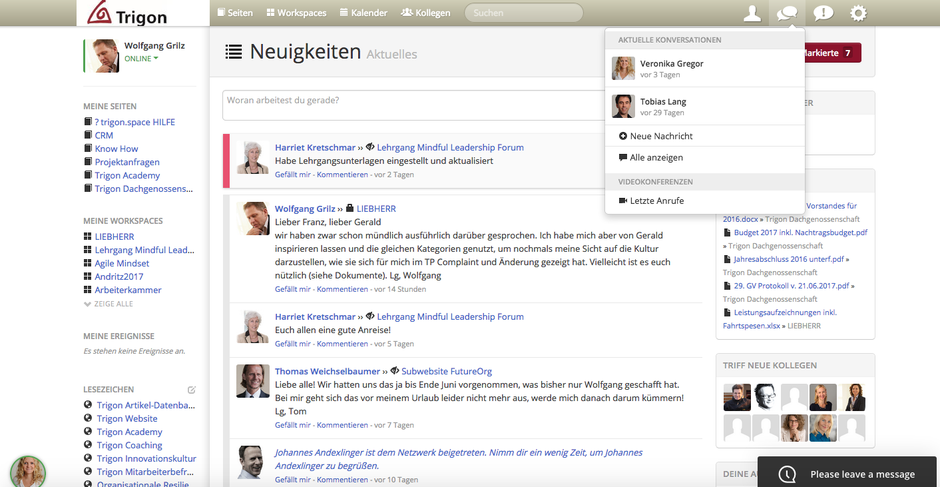Knowledge Management 2.0
Social Collaboration – Knowledge Management in the organisation of the future
Digitalisation and the associated shift towards cooperation and decision-making bring with it new demands on competence and knowledge management in organisations.
Communication and collaboration must be designed in such a way that decisions can be made more quickly. Knowledge management must also provide access to the implicit knowledge of employees and to previously untapped employee potential. Increasingly often, in-company social media solutions (often referred to as Enterprise 2.0 or Knowledge Management 2.0) serve as well-functioning vehicles to meet both challenges adequately.
To know what you know and to know what you do not know, that is true knowledge. – Confucius
Wolfgang Grilz supports you in the following areas of knowledge management in agile organisations:
Knowledge management as part of a comprehensive digitalisation strategy
For your social media solution to be successful as a communication and knowledge management system, you must first work on tailoring it to the strategic needs of your company.
Developing effective/functioning in-house knowledge communities
To ensure that the inherent knowledge in your company is available, cross-functional and cross-departmental collaboration is encouraged. Together we will create the necessary trust to achieve an open approach to the exchange of information. And of course, we also need rules to ensure clear procedures and security.
Designing the company as a learning organization
Collaboration using digital tools requires a deep understanding and cultural change towards learning organizations. Included in this are a great willingness to deal openly with information, a living no blame culture and a love to experiment.
Attractive knowledge management solutions
Sharing knowledge in organisations must not be a tiresome chore. It must take place as a by-product of the daily work process and must originate from on the employees' need for information and communication.

